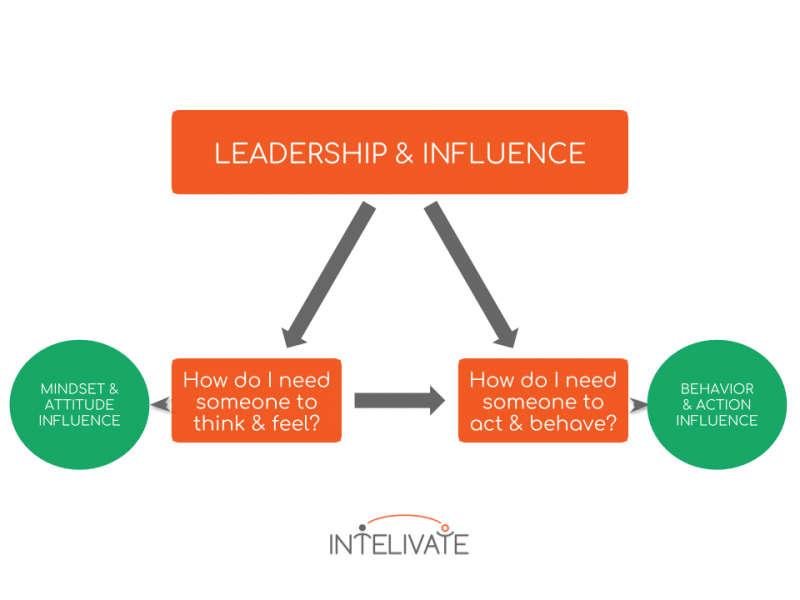A quick answer to “Are leaders born or made?” is ‘born.’ The reasons are more complex as they impact the success of millions of careers and businesses.
Because not all natural leaders are great at the beginning, I’ll give you organizational and career strategies to move natural leaders to great.
I recently worked with a team of executive leadership to develop a leadership succession and development plan. These executives are doing the right thing by looking far ahead because they knew the business needs some great leadership talent to fill the future ranks.
I analyzed their initial plan and realized they were going down the wrong path. I opened up a discussion and asked, “What makes a great leader for your company?”
What kind of responses did I get?
- Project management experience
- Industry experience
- Budget experience and success
- MBA and certification requirements
- Implementation experience
These characteristics are everything to do with subject matter experts (SMEs) and managers and nothing to do with leaders. Many people don’t understand the differences between leadership and management and use the terms interchangeably.
I could hear the check-list marks through the recruiting process for their leadership program. The smell of the marker to check the boxes was filling the room. Their approach had to change fast because they were not going to be filling their program with leaders.
I hinted that they were leaving off the most important selection criteria. The group just stared at me. I asked,
Shouldn’t the single most important selection criterion for a leader be the absolute passion and need to lead?
There was silence and then I heard a ‘hmmm’ from the most senior executive. She invited me to elaborate.
Here is how I broke it down to them.
The Basics: Leader & Leadership Relationship
I want to start at the most basic level so that we are all on the same page. The relationship between a leader and leadership sounds basic, but the terms are often used incorrectly and confused.
Because all of them were parents, I used parent vs. parenting as a parallel to leader vs. leadership.
A leader is to leadership as a parent is to parenting.
Great parents are naturals. They have instincts that only other amazing parents can understand.
Does that mean that great parents are great at parenting right from the start? No! Most of their time, in the beginning, is learning from mistakes, learning from each other, and learning through experience.
All the while great parents feel like failures when they first begin the act of parenting – silently crying while covered in vomit and any other bodily fluids. So what eventually makes them great at parenting? They want to be a parent, and that natural instinct drives them always to do better.
They learn along the way and gain confidence in parenting through time and experience. However, it starts with instinct. You cannot teach that to anyone.
Are all people that are natural parents, actual parents?
No.
Why? Usually because of choice, (other priorities that are more ‘natural’ to them), situation (inability) and sometimes out of fear.
People tell me I am a natural parent. The thought of being responsible for another human being scares the crap out of me. I woefully lack in the confidence of my parenting abilities.
Why aren’t all parents great?
Although this is always a huge debate, it comes down to that they either did not want to be parents or they were fearful of being a parent. In either case, there is not the instinct and drive to evolve parenting skills to be great. It does not feel natural to these parents.
At this point, I heard one of the executives excitedly say,
I see where he is going with this, and it is making much more sense now!
As the heads started nodding with the excitement of “I think I am getting it,” I kept the momentum going.
Now, let’s talk about natural leaders and leadership. If a parent is to parenting, then a leader is to leadership.

What are the Goals of Leadership?
Just like parenting, the goals of leadership are:
1. Develop independent people and teams.
As a parent, you do not want your kids living at home forever. As a natural leader, you want those you lead to building the confidence and skills to create part of the business independently.
2. Develop people and teams to add significant value.
Once children mature and are independent, you want them to increase the value to society (e.g. a great career, involved in making society better). The same for born or natural leaders, but society is the business.
3. Develop loyalty.
Loyalty to the family, parents, siblings to stay close and connected – that is a parent’s goal.
A leader cannot build great influence without a following, and that begins with building a strong network of loyalty.
Born leaders naturally gravitate towards reaching these leadership goals.
Great Leaders Are Natural Leaders.
Great leaders are natural. They have instincts that only other great leaders can understand. Other see it as impossible. Great leadership eventually becomes simple for natural leaders.
The core of leadership comes down to instinct. The instinct of goals that I listed above. The inclination of natural leaders is to protect and only be satisfied when the people they lead are happy and successful.
You cannot teach that natural leadership instinct. Those goals, coupled with natural ability, drive growth in a company.
1. Natural leaders are not necessarily great at leadership – in the beginning.
Just like new parents, new leaders spend most of their time at first learning from mistakes, learning from each other and learning through experience.
Natural leaders are not great at leadership – in the beginning.
The goal of an executive coaching and leadership development program is to support that growth systematically and expedite the learning curve in a safe, but realistic environment.
2. Not all born leaders are actual leaders.
While I believe that all natural leaders have the drive to lead, many haven’t had the opportunity find a career path or lack confidence in their leadership ability.
More times than not, and when these hidden gems get identified, given a chance to lead and gain the confidence in their leadership abilities, they become rising stars.
These natural leaders become some of the most impacting people in your business and its future.
3. Many leaders are not great leaders.
In reality, many people in leadership positions are bad leaders. The two biggest mistakes I see in leadership placement are:
- They do not want to lead: they do not have the inborn traits or desire to lead. Moving into a leadership role is an expectation they have to themselves or others have of them – they do it for the wrong reasons.
- SME – organizations make the mistake of placing subject matter experts (SME) into leadership roles. Being a SME has nothing to do with being a great leader.
Very often, SMEs have no desire to be a leader. They would rather stay in a SME-specific role. See point #1 as to why they then pursue leadership positions.
I have seen entire companies turned around by great leaders that were from completely different industries.

Natural Leaders – Teaching vs. Development
When I am asked to coach an executive, it starts with two intake sessions of discussions.
More times than not, I will recommend that the leader is not ‘coached.’
Why?
They are in the wrong role and are not natural leaders. Deep down inside, they do not want to be leaders. The only way that anything I coach and develop will be sustainable is through process and rules. That defeats the role of a leader.
If there are inherent traits I identify and a genuine instinct/desire to lead (natural leaders) – and for the right reasons – we will go forward in coaching to develop those born leaders’ talents. Most of that development comes from building confidence and trust within the leader in his/her abilities in leadership – and that involves time and experience.
They got it. Leaders are natural and can be developed to be great.
Organizational Strategy for Natural Leaders
Fantastic! But they needed a plan. We developed one rather quickly. From a high-level, it involved:
1. Tear up the existing leadership development plan.
They unanimously agreed that the original plan was not going to give them the results they hoped. This plan had no focus on born leaders. It was less time-consuming and expensive to start a new program as opposed to fixing the old one.
Kudos to this leadership team for doing that! Many toxic leaders will stay on the existing plan or try and fix it, knowing that it would be best just to start from scratch.
2. Engage HR & Recruiting.
The new approach to leadership development was an enormous organizational shift. HR & Recruiting are critical to getting an accurate picture of the current resource landscape and changing the hiring and onboarding of their new leadership type.
3. Devise an identification plan of natural leaders.
Along with hiring the right people, there needed to be a plan for identifying current resources as targeted leaders. This component is critical and often lacks a formal program.
4. Develop a comprehensive and tiered leadership development program.
Their vision for the leadership development program was outside of traditional training which relieved me. The best development programs function as ongoing change and transformation programs. That is how we structured the program and designed it for all levels of leaders – including targeted leaders that have not been in a formal leadership position.
5. Develop a formal leadership mentor program.
We designed a mentor leadership program to support both natural leaders identification and leadership development goals. Mentor programs when properly structured and matched offer incredible gains back to the business. It still astounds me at the number of companies that either do not have a formal mentor program or do it completely wrong.

Career Strategy for Natural Leaders
Some of you are likely thinking,
Great! You solved at the organizational level, but how does this help my career?
Well, I’m glad you asked. Take all of the points above and apply them at your individual level. Sounds easy, but there are some things you need to do first.
1. Determine if you want to be a leader.
Dig past the expectations of others and determine if you want to be a leader. If the basis of your desire to be a leader is promotion, compensation or the perception of the leadership function, then you will likely be a mediocre leader – at best.
Where do you start this? Evaluate what roles, functions, and tasks you naturally favor. The free career quizzes and personality tests from our Truity partners are a great way to begin this self-assessment.
2. Work with a mentor.
Even if your company does not have a formal mentor program, seek one out informally. Your mentor can either be internal to your business or someone completely outside of your industry depending on your career progression goals.
I highly advise choosing a mentor that has no direct role in your yearly employee evaluation or formal career progression. That causes a potential conflict. Your mentor should be completely unbiased and unaffected by your career decisions. This is one of the major mistakes that companies and individuals make when crafting a mentor program.
Your mentor should be completely unbiased and unaffected by your career decisions. This is one of the major mistakes that companies and individuals make when crafting a mentor program.
3. Become a volunteer.
Does your gut tell you that you have team leadership characteristics but you lack confidence in your skills? Find a volunteer program and observe and apply leadership.
Your company likely has formal volunteer programs established. These are fantastic ways to experience leadership outside of your role and company.
Once you determine the yes or no behind your desire for leadership, it is time to start making the process formal. Develop a promotion pitch as a way to talk to your manager about your aspirations.

If you would like any more detail on any of these steps or how we developed these plans, let me know. Remember – lead from within and always be you! This article from the Wharton Business School provides some additional insight on natural leaders vs. made leaders.
Related Solutions to Help With Your Leadership, Team & Career Development.
> Leadership & Organizational Strategy Solutions
Kris Fannin
Kris Fannin is a passionate change agent in workforce transformation. For more than 25 years, he's had the privilege of partnering with dozens of client organizations and leading hundreds of teams to become powerful influencers.
"Your legacy will be defined by the passion and impact of the people you influence. What do you want your legacy to be?"




